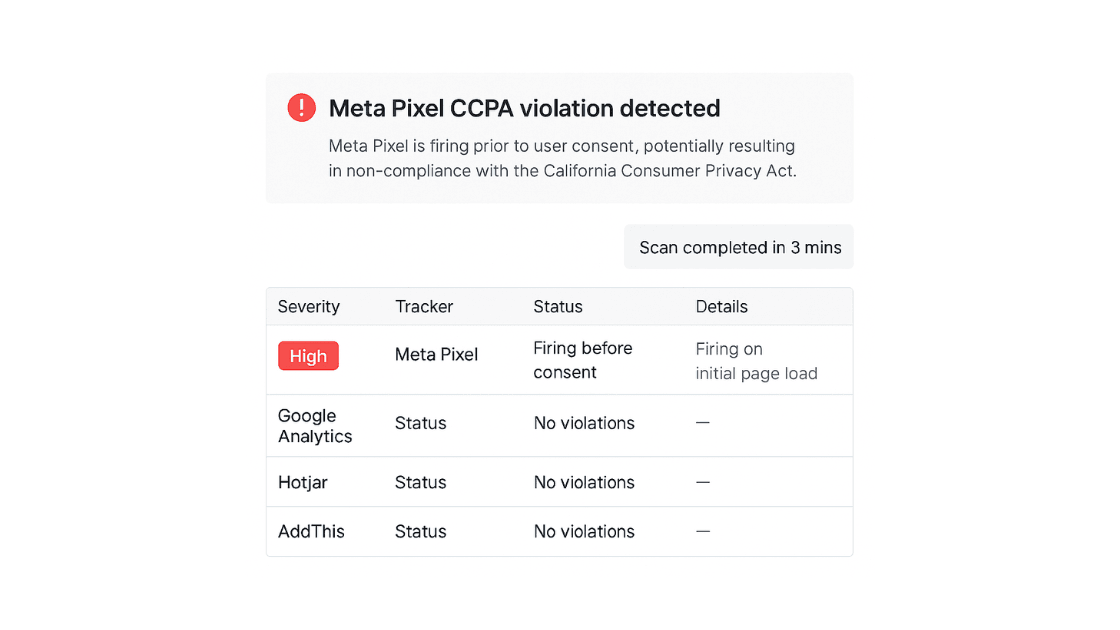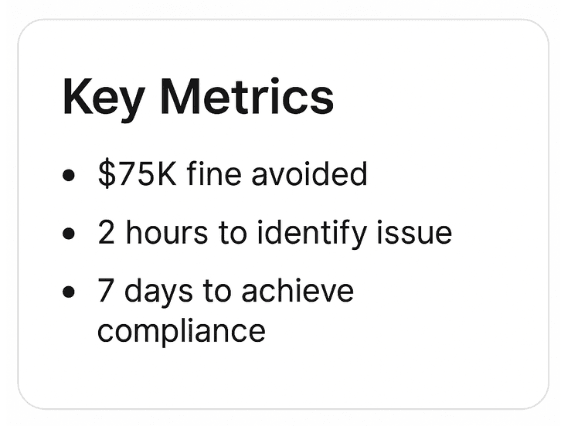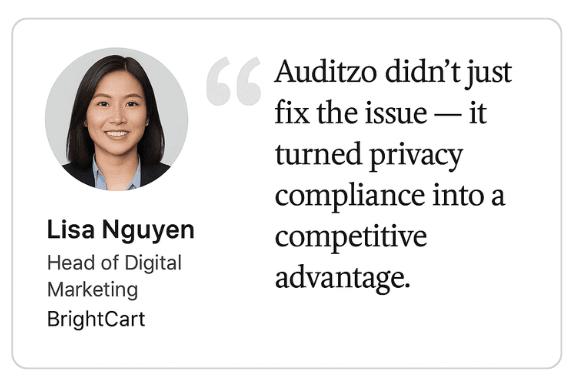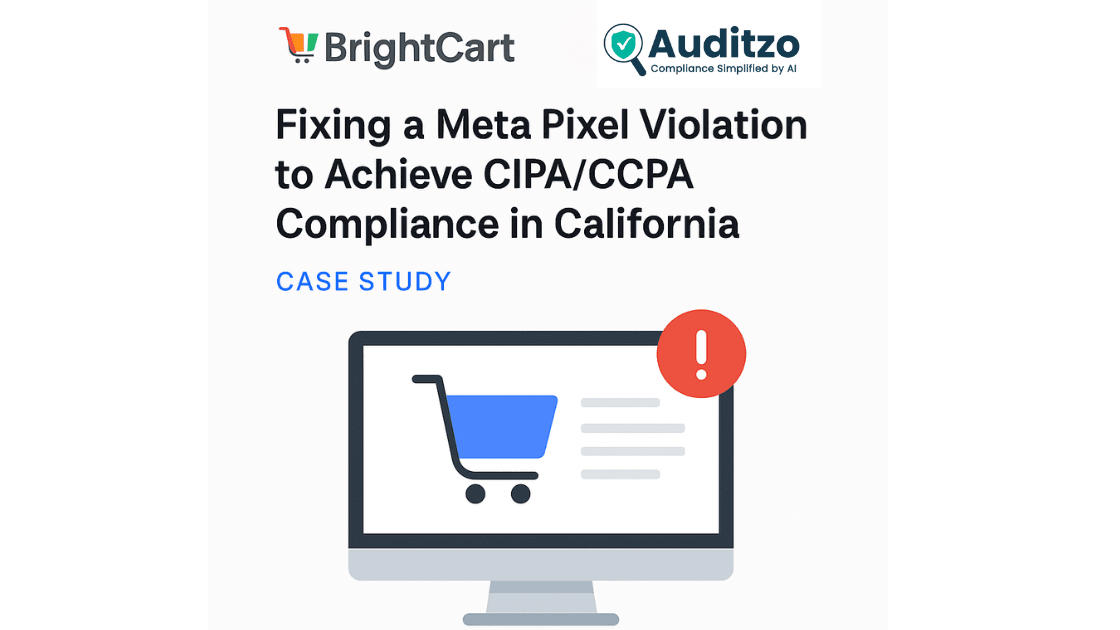Context: Why This Case Matters for DTC Teams
California shoppers expect privacy compliance and control. A single tracking misfire can impact brand trust, cause ad disruptions, and create exposure under CCPA and CIPA. This case shows how a fast, AI‑powered audit prevented risk and preserved performance.
Problem: Meta Pixel Fired Before Consent
During a pre‑campaign QA, legal flagged that Meta Pixel was firing on first page load for California users. That meant identifiers could be sent before users opted in. The risk included stacked CCPA violations and headlines that erode trust.
- Pre‑consent events captured and sent to ad endpoints.
- Missing “Do Not Sell My Personal Information” link.
- No geotargeted opt‑out for California traffic.
Discovery: 3‑Minute AI Audit Exposes Root Cause
BrightCart ran an AI‑powered compliance audit with Auditzo. Time to first insight: about three minutes. The scan identified pages, scripts, and event payloads causing the issue and scored severity for legal, dev, and marketing to align quickly.
- Meta Pixel firing without consent on first load.
- Immediate transmission of purchase and IP data.
- Absence of a working opt‑out for California visitors.

Resolution: Consent‑First Tracking Without Pausing Growth
Auditzo delivered a phased plan the team could execute without taking campaigns offline.
- Consent Flow Fix: Deploy a CCPA‑compliant banner; fire Meta Pixel only after explicit opt‑in.
- Opt‑Out Control: Add a visible “Do Not Sell My Personal Information” link; enable IP‑based geofencing for California visitors.
- Ongoing Monitoring: Schedule weekly automated audits and email alerts for drift.
Need a step‑by‑step? Share the CCPA Compliance Checklist (2025) with legal, dev, and marketing.
Impact: Compliance Locked, Performance Intact
- Zero Meta Pixel violations in follow‑up scans.
- $75,000 fine avoided by eliminating pre‑consent events.
- Retargeting and measurement remained live and CCPA/CIPA compliant.
- 12% drop in bounce rate among privacy‑sensitive users.
- 18% uplift in customer trust survey responses.

Quote: What the Team Said
“Auditzo didn’t just fix a bug. It turned privacy compliance into a confidence signal our customers can feel.” - Head of Digital Marketing, BrightCart

Quick Q&A
What was the biggest issue found?
Pre‑consent Meta Pixel events that sent identifiers to ad endpoints, creating CCPA/CIPA exposure.
How quickly did Auditzo identify the problem?
About three minutes. The AI‑powered audit flagged scripts, pages, and payloads with severity scoring.
Can smaller brands face significant penalties?
Yes. Violations can stack. Preventing pre‑consent events helps avoid fines and protects brand trust.
Playbook: What Teams Should Do Next
- Run a quick scan with Auditzo to detect consent misfires.
- Gate all trackers behind consent for California visitors.
- Publish a visible Do Not Sell My Personal Information link and test it monthly.
- Schedule weekly automated audits to catch regressions before they ship.
Further Reading
- CCPA Compliance Checklist (2025) for legal and marketing.
- California Consumer Privacy Act (CCPA) official overview.
- California Invasion of Privacy Act (CIPA) statutory text.
Summary
- BrightCart uncovered a pre‑consent Meta Pixel issue that risked a $75,000 CCPA fine.
- Auditzo identified root causes, prioritized fixes, and enabled consent‑first tracking.
- Visible opt‑out and weekly automated audits now prevent regressions.
- Results: zero violations, campaigns uninterrupted, measurable trust gains.
Call to Action
Want results like these? Run your free AI‑powered compliance audit now and get a prioritized, developer‑ready fix list your team can implement fast.
Compliance Notes
Under the CCPA, California residents must have clear choice and control before data is collected. For sites using Meta Pixel, ensure consent gating and provide a functioning Do Not Sell My Personal Information pathway. See CIPA for wiretap‑style risks if communications are captured without proper disclosures.
